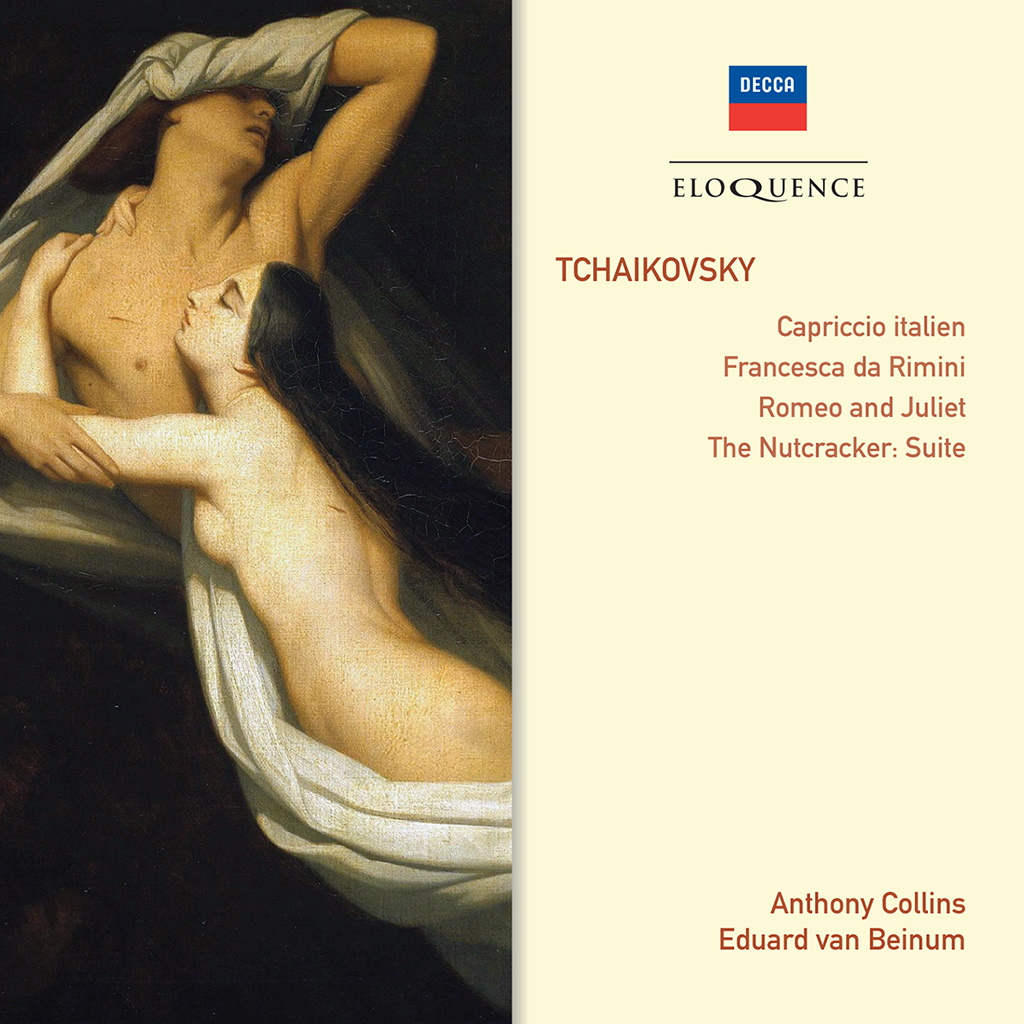
Four of Tchaikovsky’s most popular orchestral works make their appearances here in historic Decca and Philips recordings appearing internationally on CD for the first time. Most travellers to Italy content themselves with writing postcards. Tchaikovsky, on the other hand, wrote a popular symphonic work. His Capriccio italien was inspired by impressions made upon the composer during a three-month stay in Rome during the winter of 1879–80. This colourful and exciting work was first heard at the end of 1880, and right from the start, it was a popular success. Tchaikovsky prepared a suite of excerpts for concert performance even before The Nutcracker was completed. The Russian musicologist Boris Asafyev perceptively called this suite a ‘symphony about childhood’. Indeed, among Tchaikovsky’s major works, it is notable for its lack of fatalism and hysteria. These two joyous pieces encase two of Tchaikovsky’s greatest tone poems about star-crossed lovers. Its opening depicts the terrifying panorama of the second circle of Hell. Francesca da Rimini tells the story of Paolo and Francesca, condemned to damnation for a kiss. Shakespeare also found a home on Tchaikovsky’s proverbial bedside table. Many composers have found inspiration in the Bard’s famous ‘star-cross’d’ lovers. Tchaikovsky counted his contribution to this genre, the Romeo and Juliet Fantasy Overture, among his very best works.
The Sussex-born conductor, Anthony Collins, left a treasured legacy for Decca, including the symphonies and selected tone poems by Sibelius. The Dutchman Eduard van Beinum was revered by orchestras for his generosity of spirit and for a time conducted both ‘his’ Concertgebouw in Amsterdam as well as the London Philharmonic simultaneously.
TCHAIKOVSKY
Capriccio italien, Op. 45
Francesca da Rimini, Op. 32
London Symphony Orchestra
Anthony Collins
Romeo and Juliet: Fantasy Overture
London Philharmonic Orchestra
Eduard van Beinum
Nutcracker Suite, Op. 71a
Royal Concertgebouw Orchestra
Eduard van Beinum
FIRST INTERNATIONAL RELEASE ON CD
Recording Producers: James Walker (Capriccio italien, Francesca da Rimini); Victor Olof (Romeo and Juliet); Jaap van Ginneken (Nutcracker Suite)
Balance
Engineers: James Brown, Kenneth Wilkinson (Capriccio italien, Francesca da Rimini); Henk Jensen, Wilhelm Huizinga (Nutcracker Suite)
Recording Locations: Kingsway Hall, London, UK, January 1950 (Romeo and Juliet), January 1956 (Capriccio italien, Francesca da Rimini); Concertgebouw, Grote Zaal, Amsterdam, The Netherlands, April-May 1958 (Nutcracker Suite)
‘Decca’s new Capriccio Italien opens with wonderfully resonant trumpet-calls (surely far more impressive than the Italian Royal Cuirassiers ever could have made them sound in their barracks for Tchaikovsky’s
benefit!); and indeed it continues throughout with recording of a very high standard … Francesca da Rimini [is notable for the] warm quality of recording … seldom can a gong have sounded more menacing than at the beginning here … this Francesca quite certainly must have [an] unhesitating recommendation’ Gramophone
‘Everything Eduard van Beinum recorded was distinctive … the electricity and finesse of the performances is never in doubt … The Nutcracker is beautifully played and […] the ear is taken by the neat, scaled down effect of the Overture, the gentle delicacy of the Sugar-Plum Fairy and the elegance of the lovely Waltz of the Flowers, with ripe horns and resonant cello playing.’ Gramophone
